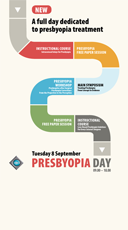The use of bluetooth noise cancelling headphones to improve training in cataract surgery and solve the age old problem: whose music? The surgeon's or the patient's
(results will display both Free Papers & Poster)
Session Details
Session Title: Presented Poster Session: News on Phaco
Session Date/Time: Tuesday 08/09/2015 | 09:30-11:00
Paper Time: 09:30
Venue: Poster Village: Pod 4
First Author: : C.Gunasekera UK
Co Author(s): : T. Burton
Abstract Details
Purpose:
Training in cataract surgery frequently involves conscious patients. Trainers must feel confident to communicate clear instructions to trainees intraoperatively in order to reduce harm. This can lead to increased distress in patients. The use of music in cataract surgery has been shown to reduce anxiety and increase patient satisfaction. Surgeons are usually in control of the music selection within the operating theatre. We report a novel inexpensive method of setting up an operating theatre where both patients and surgeons can listen to the music they desire so that trainers can freely talk to trainees without distressing patients.
Setting:
The Norfolk and Norwich University Hospital NHS Foundation Trust, Norwich, United Kingdom.
Methods:
Our method utilises a smartphone, Bluetooth headphones, Bluetooth remote, a pair of gloves, a sterile cover and subscription to a music-streaming service. Patients are asked their music preference prior to the operation and provided headphones connected to a smartphone. Music from a music-streaming service is selected. Gloves are placed on both ends of the headphones and taped to create a waterproofing. A sterile cover is placed on a Bluetooth remote which can pause music during the operation so that the surgeon can deliver free instruction to the patient. The surgeon's regular music can be played in the background.
Results:
This method allows patients to listen to the music they desire during an operation. Surgeons can also listen to the music of their choice which can keep them focussed during surgery. Trainers can freely communicate to their trainee during surgery and talk to the patient when necessary to provide instruction. Trainers, trainees and patients have reported increased satisfaction through this setup.
Conclusions:
Surgeons can now freely communicate to trainees and provide them with clear intraoperative instructions without increasing patient anxiety. This approach also enhances patient-centred care within cataract surgery. This novel approach will be of interest to many Ophthalmologists and trainees who operate on conscious patients.
Financial Interest:
NONE





